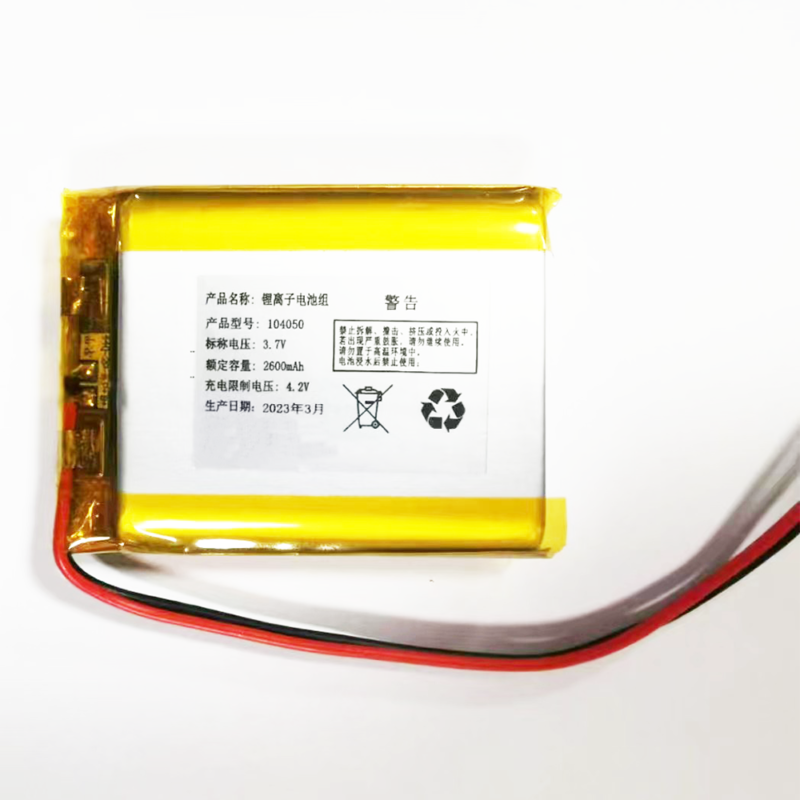Efficiency Unleashed: The Advantages of Lithium Polymer Batteries in Modern Electronics cannot be overstated. As technology continues to evolve, the demand for more efficient and reliable power sources grows exponentially. In this article, we delve into the world of lithium polymer batteries, exploring their composition, advantages, applications, and future prospects.
Efficiency Unleashed: The Advantages of Lithium Polymer Batteries in Modern Electronics lie in their unique characteristics and performance capabilities. Defined as rechargeable batteries that utilize a solid polymer electrolyte, lithium polymer batteries offer numerous advantages over traditional lithium-ion batteries, making them an ideal choice for various electronic devices.
Understanding Lithium Polymer Batteries
Composition and Structure
Lithium polymer batteries consist of several key components, including a cathode, an anode, a separator, and an electrolyte. Unlike conventional lithium-ion batteries that use liquid electrolytes, lithium polymer batteries employ solid polymer electrolytes, enhancing their stability and safety.
Working Principle
The operation of lithium polymer batteries involves the movement of lithium ions between the cathode and the anode during charging and discharging cycles. This process enables the storage and release of energy, powering electronic devices efficiently.
Advantages of Lithium Polymer Batteries
Lightweight and Flexible Design
One of the primary advantages of lithium polymer battery is their lightweight and flexible design. Unlike traditional battery, which are bulky and rigid, lithium polymer battery can be manufactured in various shapes and sizes, allowing for greater flexibility in product design.
High Energy Density
Lithium polymer battery boast a high energy density, meaning they can store a significant amount of energy in a relatively small and lightweight package. This makes them ideal for portable electronic devices such as smartphones, tablets, and laptops, where space and weight are critical factors.
Applications in Modern Electronics
Consumer Electronics
Efficiency Unleashed: The Advantages of Lithium Polymer battery in Modern Electronics are prominently showcased in consumer electronic devices. From smartphones and smartwatches to wireless headphones and fitness trackers, lithium polymer battery power a wide range of portable gadgets, providing long-lasting performance and quick recharge times.
Medical Devices
In the field of healthcare, lithium polymer battery play a vital role in powering medical devices such as insulin pumps, pacemakers, and portable diagnostic equipment. Their compact size, high energy density, and reliability make them indispensable for maintaining patient health and well-being.
Environmental Impact and Sustainability of Lithium Polymer
Recycling Efforts
Efficiency Unleashed: The Advantages of Lithium Polymer battery in Modern Electronics extend beyond performance to environmental sustainability. With increasing awareness of electronic waste management, efforts to recycle lithium polymer battery have gained momentum, reducing the environmental impact of discarded battery and conserving valuable resources.
Environmental Benefits
Compared to traditional disposable battery, lithium polymer battery offer significant environmental benefits, including lower carbon emissions and reduced reliance on finite resources. By promoting energy efficiency and sustainability, lithium polymer battery contribute to a greener and more eco-friendly future.
Challenges and Limitations
Safety Concerns
Despite their numerous advantages, lithium polymer battery are not without challenges. Safety concerns, such as the risk of thermal runaway and fire hazards, remain a significant issue, necessitating strict quality control measures and safety protocols during manufacturing and usage.
Degradation Issues
Over time, lithium polymer battery may experience degradation in performance and capacity due to factors such as cycling, temperature extremes, and storage conditions. Minimizing degradation requires proper battery management practices and regular maintenance to prolong battery life and ensure optimal performance.
Future Trends and Innovations
Advances in Technology
Efficiency Unleashed: The Advantages of Lithium Polymer battery in Modern Electronics are poised to expand further with ongoing advances in battery technology. Innovations such as solid-state electrolytes, silicon anodes, and nanotechnology hold the promise of enhancing battery performance, safety, and longevity, paving the way for new applications and markets.
Potential Developments
Looking ahead, the future of lithium polymer battery holds exciting possibilities, from improved energy storage solutions for renewable energy systems to breakthroughs in electric vehicle technology. As research and development efforts continue, lithium polymer battery are expected to play a pivotal role in shaping the future of modern electronics.
Conclusion
Efficiency Unleashed: The Advantages of Lithium Polymer Batteries in Modern Electronics underscore the significant impact of battery technology on the evolution of electronic devices and systems. From consumer electronics to medical devices and beyond, lithium polymer battery offer unparalleled performance, reliability, and sustainability, driving innovation and progress in the digital age.
